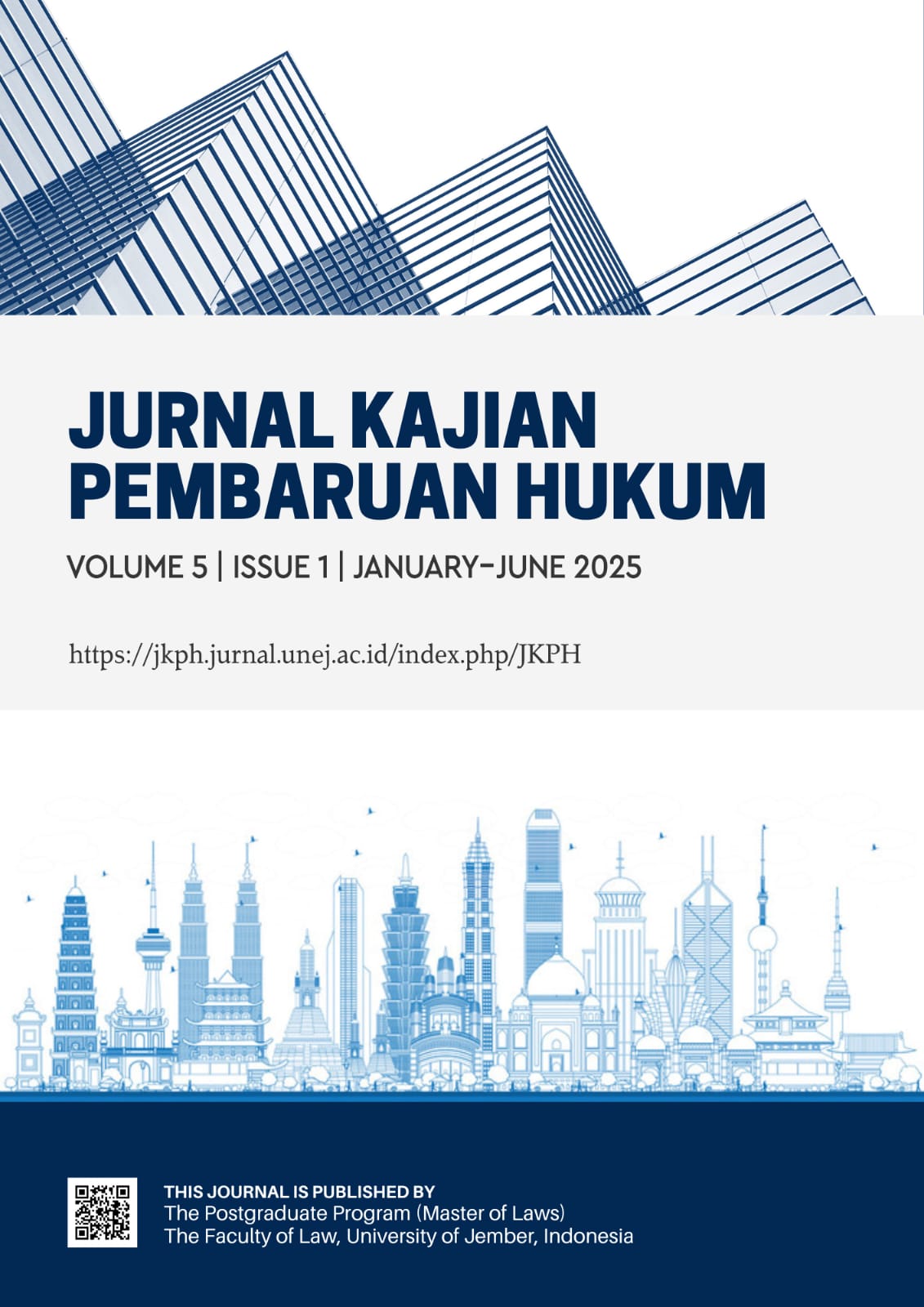Revocation of Land Gifts for Breach of Filial Responsibility: A Comparative Study of Indonesia and India
DOI:
https://doi.org/10.19184/jkph.v5i1.53695Abstract
The transfer of land rights through gifts within familial relationships often entails obligations of filial responsibility, particularly the duty of children to care for their elderly parents. As the increasing disputes over property transfers within familial relationships, this study addresses the legal grounds and consequences
of revoking land gift agreements in Indonesia and India when recipients fail to fulfil their filial obligations. So the urgency of the results of this research can help to renew civil law in Indonesia, in particular, and add to the literature as a more general research concept. This article is a normative legal research methodology with statutory, conceptual, and comparative approaches. The findings reveal a doctrinal divergence: Indonesian law mandates explicit conditions within the gift deed to allow revocation based on filial neglect, emphasising a textual interpretation under Article 1688 of the Indonesian Civil Code. Conversely, Indian law, notably through Article 23 of the Welfare of Parents and Senior Citizens Act, recognises both explicit and implicit filial duties as valid grounds for annulment, facilitating broader judicial protection for elderly donors. The study highlights the restrictive scope of Indonesian legal enforcement compared to the more flexible, purposive judicial approach in India, which prioritises substantive justice and familial welfare. These insights suggest that Indonesian legal reforms could benefit from adopting similar flexibility to strengthen safeguards for elderly parents, mitigate intra-family conflicts, and ensure equitable intergenerational property transfers, because the similarity between Indonesia and India is the application of a legal system influenced by customary law.
Downloads
Download data is not yet available.
Downloads
Published
2025-06-27
Issue
Section
Articles
License
Copyright (c) 2025 Jurnal Kajian Pembaruan Hukum

This work is licensed under a Creative Commons Attribution-ShareAlike 4.0 International License.







